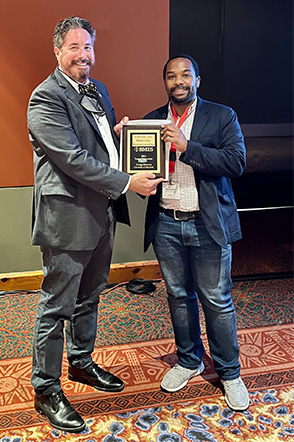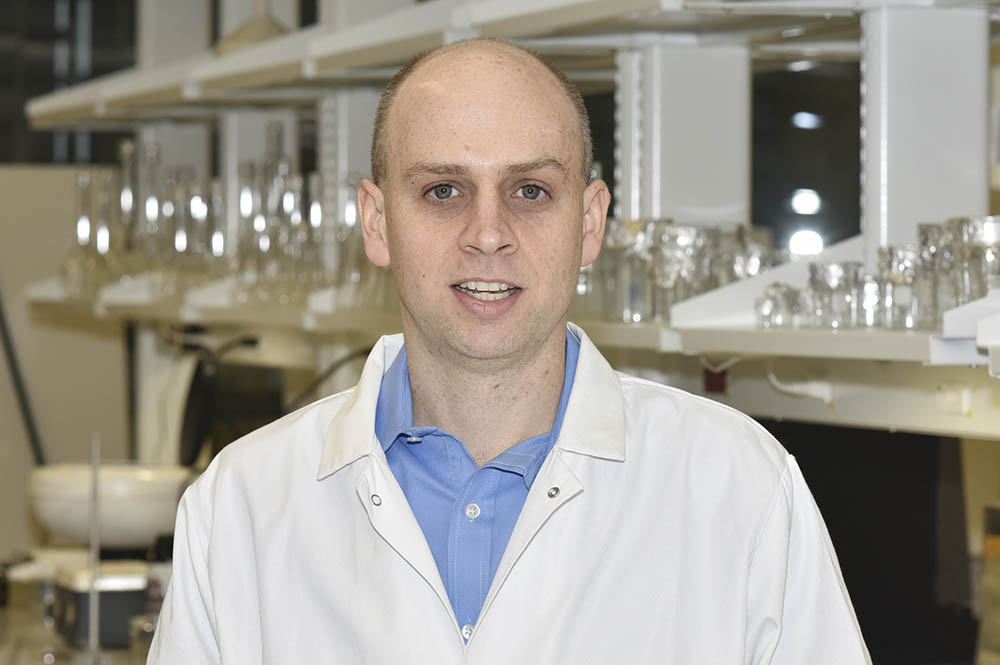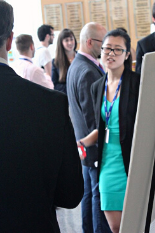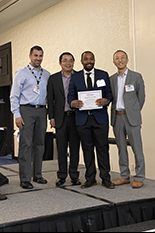News Story
Duncan Named BMES 2021 Rita Schaffer Young Investigator Award Honoree

Dr. Gregg Duncan
Fischell Department of Bioengineering (BIOE) Assistant Professor Gregg Duncan was named the recipient of the 2021 Biomedical Engineering Society (BMES) Rita Schaffer Young Investigator Award.
Offered each year by BMES to stimulate research careers in biomedical engineering, the award is given to a young investigator whose originality and ingenuity is demonstrated in a published work.
Duncan was recognized for his work as PI of the Respiratory Nano Bioengineering (RnB) Lab. Duncan’s group aims to understand airway micro-physiology in health and disease in order to engineer new therapeutic strategies for obstructive lung diseases such as asthma, chronic obstructive pulmonary disease (COPD), and cystic fibrosis.
Mucus within the lung is designed to behave like an “escalator” with the ability to capture potentially harmful inhaled materials, such as pathogens or particulates. Through a process known as mucociliary clearance, this “escalator” carries harmful inhaled materials up to the throat to be swallowed and sterilized. In individuals with asthma, biochemical analysis of mucus produced by cough revealed that mucin composition changes as a function of disease severity.
Recently, Duncan and his lab engineered what they call “synthetic mucus” in order to understand mucus dysfunction in asthma. They engineered this synthetic mucus to mimic the chemical and physical properties of airway mucus in health and in asthma.
Duncan and his team are particularly interested in MUC5B and MUC5AC – two large, gel-forming mucins that assemble to form airway mucus gels. In individuals with asthma, mucin composition changes in such a way that MUC5AC becomes the dominant secreted mucin, rather than the more typical MUC5B, but scientists don’t yet know why this shift contributes to the biological function of mucus.
To tackle this, Duncan and his team used synthetic mucus to compare the two mucins. Knowing that viral infections can exacerbate the effects of asthma, Duncan and his team examined how changes in the ratio of MUC5B to MUC5AC affected the ability for the influenza A virus to penetrate mucus.
“We found that influenza viral particles rapidly penetrate asthma-like synthetic mucus, leading to widespread infection in human airway cultures coated with an asthma-like synthetic mucus barrier,” Duncan said. “The results of this work may help to explain enhanced susceptibility to infection in those with asthma and other related lung conditions.”
Duncan earned his Ph.D. in chemical engineering from Johns Hopkins University and completed his postdoctoral training at Johns Hopkins School of Medicine in the Center for Nanomedicine before joining the BIOE faculty in 2017. Prior to his Rita Schaffer Award, Duncan received the Burroughs Wellcome Fund Career Award at the Scientific Interface, the Oak Ridge Associated Universities (ORAU) Ralph E. Powe Junior Faculty Enhancement Award, the BMES-Cellular and Molecular Bioengineering (CMBE) Rising Star Award, and the National Science Foundation (NSF) CAREER Award, among other accolades.
Duncan follows BIOE Associate Professor and alumna Kimberly Stroka (Ph.D. ‘11) as the department’s second Rita Schaffer Award recipient. Stroka received the award in 2014.
In recognition of his honor, Duncan will deliver a 20-minute lecture at the BMES Annual Meeting this week.
Published October 4, 2021









